Centro Community Partners: From Entrepreneurial Dreams To Business Success
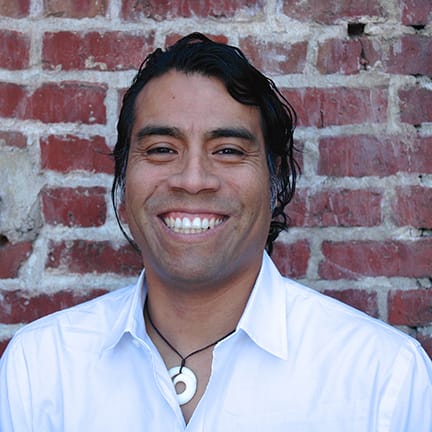
Anna Tvelova traveled from Russia to San Francisco to chase her dreams: making her grandmother’s traditional piroshki recipe into a successful business.
Feleciai Favroth left her career as a realtor to take a chance: jumping into the beauty industry with her own line of luxurious, handcrafted beauty creams and soap products.
Luis Abundis went from making homemade ice cream on his uncle’s ranch as an eight-year-old boy in Mexico to selling the frozen treat from a modest storefront: offering unique flavors throughout the Bay Area.
All three of these budding business owners got the advice and resources they sorely needed to make their entrepreneurial dreams a reality thanks to Centro Community Partners, founded and led by Drucker alumnus Arturo A. Noriega (MBA, 2005).
The Oakland-based nonprofit’s mission is to educate and develop low-income women and minority entrepreneurs to be effective, socially-conscious business leaders. Noriega created the program in 2010 to help underserved entrepreneurs develop business plans, improve their credit, and learn leadership techniques. This, in turn, allows business owners to create jobs and revitalize their local communities.
“Not only are we bridging the gaps left by the economic development system in the US and abroad, but we are also innovating by creating entrepreneurship mobile app tools and educational programs that are scalable, cost-effective, and impactful.” Noriega said.
Centro has been so successful that Noriega—along with help from fellow Drucker alumnus Daniel J. Healy (MBA, 2011)—recently launched the aforementioned app that is spreading the organization’s innovative entrepreneurship model across the US and throughout the world.
According to Noriega, Centro provides basic and advanced entrepreneurship development and advisory services that help clients to grow.
“The program we created focuses on building an entrepreneur’s leadership ability, self-awareness, decision-making processes, and business acumen,” he said.
Centro teams up entrepreneurs with volunteer MBA-student advisors. The advisors provide clients with up to 100 hours of personalized business advice and coaching. The one-on-one time allows the client to gain valuable knowledge and skills and design the business, financial, professional development, and credit improvement plans with an advisor as well as pitch presentation.
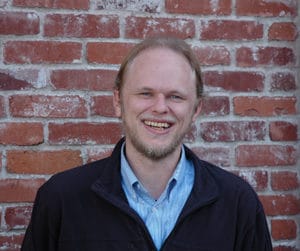
Entrepreneurs who graduate from Centro’s program are expected to reach $100,000 in sales within three years.
Centro’s advisors benefit, too, by gaining valuable small-business advising experience through the enterprise building process. They receive unique professional training in communication, business modeling, and executive coaching which they wouldn’t normally get in a conventional MBA program.
“We teach them how to be advisors. The top MBAs that finish our program enter our field and they become providers,” said Noriega.
By empowering underserved entrepreneurs, Centro assists its clients in creating living wages for their families and sustainable jobs in their community, a powerful position to be in during tough economic times.
“Enabling low-income entrepreneurs can really impact those communities, because the entrepreneurs don’t just create jobs for themselves. They create jobs for other people as well,” said Healy, who serves as Centro’s entrepreneurship program manager.
The program’s commitment to social justice and socioeconomic change is clearly corroborated through its many success stories:
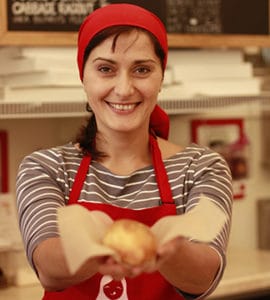
• Anna Tvelova worked with her Centro advisor to develop a profitable business model to get her first Piroshki kiosk off the ground and develop plans for future growth. Since the success of her first location, Tvelova has hired several part-time employees and recently opened a second location with plans to expand in the future.
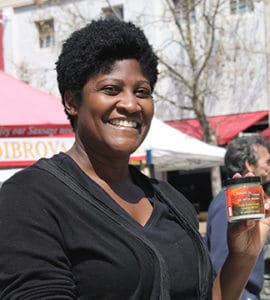
• Centro helped Feleciai Favroth break into the beauty industry by building upon her business education and experience. The program assisted her in developing a business plan and financial projections, and the Centro-taught marketing techniques have helped expand Favroth’s skin care product line beyond the farmers market.
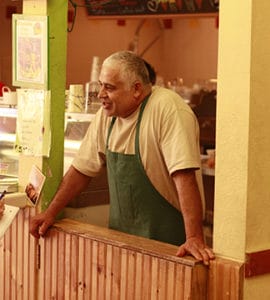
• Centro teamed Luis Abundis with an advisor who helped him with inventory control, branding, and distribution. With this assistance, Abundis’ business expanded to a second location and more than 30 unique flavors of ice cream—including corn, cactus, and rose petal.
The new mobile app, the Centro Business Planning Tool, is expected to prompt further success stories.
The free tool, available for Android and iOS devices, is a “business planning” app. The app asks users a series of simple questions and, unlike others currently available, creates a personalized business plan directly from their responses. Once the process is completed, the user is able to access capital through Kiva Zip, a well-known crowd-sourcing platform.
True to their management education at the Drucker School of Management, Noriega and Healy incorporated many ideas from famed management theorist Peter F. Drucker into Centro’s approach and its mobile app. In the app, the first steps to building the business plan are on vision, mission, and values.
“The idea behind our app is it provides a tool for other organizations, like ours . . . to become more efficient and effective and reduce their costs, which means they can afford to have the capacity to serve more entrepreneurs,” Healy said.
As Noriega sees it, the app—currently available in Spanish and Portuguese— is capable of providing key business and management guidance to underserved entrepreneurs in rural communities as well as developing countries. The app is currently being used in four US states, as well as Brazil and Colombia.
“The idea is that each successful client will inspire others in their community and become role models, showing it is possible to succeed through entrepreneurship,” Noriega said.
For more info about Centro Community Partners, click on the link below to watch a video: